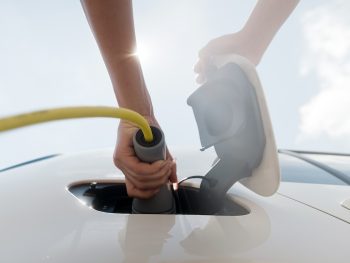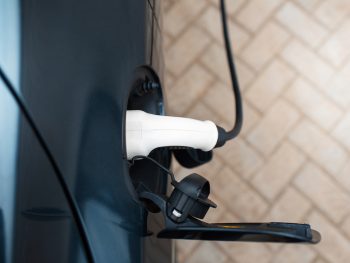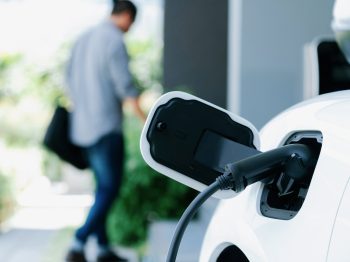New car market beats pre-pandemic levels but EVs struggle to boost market share
October new car registrations have hit their highest level since 2018 on the back of strong demand from larger fleets, but subdued EV growth is hindering green goals.

The UK new car market’s 15th month of growth was driven almost entirely by large fleet registrations
Last month’s new car market grew by 14.3% to reach 153,529 registrations, 7.2% above pre-pandemic levels, according to the latest figures from the Society of Motor Manufacturers and Traders (SMMT).
The 15th month of consecutive growth was mainly due to soaring registrations by large fleets, which rocketed 28.8% to reach 87,479 units – giving a 57% share of the market, compared to 50.6% in October 2022. However, ‘Business’ registrations to fleets with fewer than 25 vehicles fell 15.2% to 3,135. Combined fleet registrations hit a total of 90,614 units, up 26.5% year on year.
Meanwhile, private registrations continued to plateau during the cost-of-living crisis, with just a 0.3% rise. This meant that just 177 more cars were registered to private buyers last month than in October 2022, while the market share held by private registrations fell to 41.0% from 46.7% a year ago.
For the year to date, overall vehicle uptake is now up 19.6%, with the market currently enjoying its best year since 2019. Fleet registrations are up 40.8% while business registrations scored 11.2% growth and private demand is up 1.6%.
Uptake of electrified vehicles also continued to accelerate in October, accounting for 37.6% of all new car registrations. Hybrid electric vehicles (HEVs) rose 24.6% to reach 19,574 units, while plug-in hybrid vehicles (PHEVs) recorded the highest proportional growth, up 60.5% to 14,285 registrations.
Battery electric vehicle (BEV) demand however is a growing concern, despite the market having recorded its 42nd consecutive month of growth, rising by 20.1% to 23,943 units. Against the backdrop of the overall market growth, this amounted to a BEV market share of 15.6%, a relatively small rise from last year’s 14.8% and far short of the 22% that carmakers will need to achieve under the zero emission vehicle mandate from 2024.
Demand from private drivers for EVs remains a particular concern, having accounted for fewer than one in four new BEVs this year, underscoring the need for fiscal incentives for private consumers.
Year to date, BEV volumes have risen 34.2% to account for 16.3% of new registrations this year, up slightly from 14.6% this time last year.
Equitable distribution and pricing for public charging vital for EV uptake

The SMMT warns that equitable distribution and pricing for public charging is vital for EV uptake, in particular by private buyers
With EV uptake greatly influenced by perceptions of charge point infrastructure availability and accessibility, the SMMT continues to warn about the need for action to ensure more equitable distribution and pricing for public charging. It’s also renewed its call for binding targets on charge point rollout, in line with those set for the car market by the zero emission vehicle mandate and supported by much-needed changes to planning and grid connections.
Mike Hawes, SMMT chief executive, said: “As fleet uptake flourishes, particularly for EVs, sustained success depends on encouraging all consumers to invest in the latest zero emission vehicles. The Autumn Statement is a key opportunity for government to introduce incentives and facilitate infrastructure investment. Doing so would send a clear signal of support for drivers, reassuring them that now is the time to switch to electric.”
Nick Williams, managing director at Lex Autolease, added: “Drivers and fleet managers will hope to see the continued commitment of the UK government to development of the UK’s charging infrastructure, the maintenance of financial incentives to choose an EV, and policies to support vehicle manufacturers invest in innovation to drive adoption levels.”
And Jamie Hamilton, automotive partner and head of electric vehicles at Deloitte, commented: “With growth of EV sales among private consumers stalling, there needs to be more focus on removing the main barriers preventing the average consumer from contemplating a switch to electric. This includes continued improvement in the underlying charging infrastructure which will also be crucial if growth is to keep up with the rising sales thresholds the government has mandated for subsequent years.”
‘Urgent tariff clarity needed to avoid erosion of EV confidence’

Novuna has called for urgent clarity on any flexibility to the 1 January deadline on EV tariffs
The looming arrival of tariffs on electric vehicle sales between the UK and the EU remains a major problem and the industry continues to lobby for an urgent solution.
Jon Lawes, managing director at Novuna Vehicle Solutions, said: “With the UK government and European Commission remaining at loggerheads over whether to delay or revise the planned taxes on EVs due to hit the automotive sector from 1 January, the industry faces a difficult few months.
“The rules of origin mandate will make it almost impossible for most vehicle manufacturers in the EU to avoid the tariffs, which could lead to price increases of over £3,000 on EU-manufactured BEVs. The clock’s ticking and we need urgent clarity on whether there will be any flexibility on this deadline, to avoid eroding confidence in the EV market.”
Richard Peberdy, UK head of automotive for KPMG, also warned that the prospect of tariffs on electric vehicles moving across the Channel was “another cloud closing in on the horizon”.
“Higher costs would threaten market competitiveness at a time when lower pricing is key to increasing EV adoption, whilst also being key to the UK meeting the 22% target set for 2024 by the Zero Emissions Vehicle Mandate. UK and EU car makers remain eager that a political agreement can be reached.”
New market outlook revised upwards but BEV uptake expectations downgraded
Thanks to the sustained increase in new car registrations, the latest market outlook has been revised upwards. Overall new car registrations are anticipated to reach 1.886 million by the end of the year, a rise of 2.1% on July’s expectations. However, expectations for BEV uptake have been downgraded again slightly, down 1.7% to 324,000 units resulting in an expected market share at year-end of 17.2%.
The overall market outlook for 2024 is marginally more positive than previously anticipated, up 1.0% to 1.970 million units (a 4.4% rise on the 2023 outlook). With an absence of consumer incentives and an overwhelming dependency on fleet registrations for growth, however, BEV market share outlook has been revised down slightly to an expected market share of 22.3%, despite registrations expected to reach 439,000 units, a 35.5% increase over 2023.

